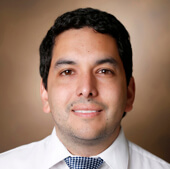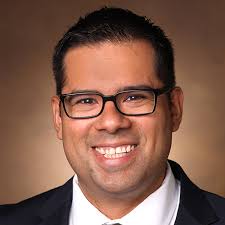Participants customize a combination of experiential, intensive, and didactic learning within one of eight broad, translational themes.
Pathways Studios are the first step. In consultation with your mentor(s), select a Pathway and prepare a summary of your rationale and need for the Pathway as well as an initial proposal of activities. Each Pathway has a core team of faculty experts to meet with you to refine your approach and proposed activities. You may request additional faculty (mentors, specific areas of expertise, etc). Dr. Ashley Hood can assist you in finding experts as needed.
Structure
Start by requesting a Pathways Studio. Each Pathway has a core team of faculty experts to meet with you to refine your approach and proposed activities. You may request additional faculty (mentors, areas of expertise). Dr. Ashley Hood can assist you in finding experts as needed. View instructions for requesting this type of Studio.
- Prior to the Studio, you will be asked to provide the committee with a Narrative Summary of your rationale for the Pathway as well as Pathway activities you have considered so far.
- A Pathway includes an average of 42 contact hours. Contact hours may include activities like Studios, giving presentations, participating in journal clubs or grand rounds that are already part of academic life, shadowing a clinician, independent study to learn technique, attending a pre-conference workshop. Activities are informed by guidance and opportunities provided by faculty experts in the Pathway Studio to ensure your training goals are met.
- After the Studio, you will be asked to provide Dr. Hood with a revised Pathways Plan (a template is provided). And, you will be asked about your progress twice a year.
- Address inquires to Dr. Ashley Hood.
- If an activity requires an expense: Pathways facilitates access to and reduces costs of training. Rather than using tuition benefit to take one course a semester, paying the full cost up front and getting reimbursed only after passing the course, the Pathways program pays some or all tuition for as many classes as the trainee decides to take at a particular time in your Pathway. The program also covers some or all costs for courses or workshops outside of Vanderbilt, and facilitates access to clinicians for shadowing, experts in a technique for side-by-side experiential learning, and other activities.
THE EIGHT THEMES:
Ensures scholars with access to massive quantities of data and powerful computational tools, and the ability to develop, deploy, and test such tools have appropriate skills. Eagerness or ignorance can lead to neglect of aspects of the origin of the data, inappropriate choices for analysis, and failure of policies for storage, management, and disclosure. Components give trainees hands-on experience with big biomedical data, software, and applications.
Builds a foundation in study design, assuring valid comparisons, and methods for estimating effects that is essential for helping basic scientists and early career clinical investigators conceptualize and conduct research with human participants. Components in this pathway provide statistical and epidemiologic training that are matched to the scholar’s intended research.
Introduces non-clinical researchers, who can work for years, indeed whole careers, without substantive exposure to clinical processes, disease and treatment effects experienced by patients, or involvement with investigators working on related clinical research. This path includes matching trainees with one of 30 available clinician mentors who are also researchers to expose them to relevant clinical environments, patient care, case-conferences, and related translational research.
Encompasses patient-centered outcomes research, implementation, and dissemination science. This pathway can drive competencies required for design, adaptation, implementation, evaluation, dissemination and sustaining interventions in varied health care contexts, and can also include engaging scholars in the conduct of pragmatic trials.
Meshes the ability to detect and characterize target molecules, image anatomy and function, conduct experiments that manipulate physiology, or amalgamate data with goals of understanding mechanisms, tailoring treatment, or predicting outcomes/prognosis with appropriate selection of statistical tools. Components teach fundamentals to help participants avoid isolated attention to precision and misrepresentation of findings to conduct research with utility for informing critical care, prevention, or wellness.
Exposes trainees to crucial themes in identity, racism, and social constructs, alongside community engagement and ethics, stakeholder engagement, and building effective partnerships. New components include historical, sociologic, and political influences on health. Lays a foundation for activities like program assessment, focus groups, translation and dissemination of research into the community, health equity research, public health practice, policy, and academic discourse beyond the biomedical health and prevention literature.
Develops understanding of how to investigate sex as a biological variable while parsing the differences and relationship between sex and gender. Key topics include biological and sociological contributions to sex and gender, function of sex chromosomes, incorporating sex hormone measures in research, health disparities and ethical implications, and study designs and statistical assessment of sex and/or gender in research.
Introduces key concepts in entrepreneurship, invention evaluation, intellectual property, industry engagement, confidentiality agreements, material transfer agreements, contracts, and steps to licensing. Options include Entrepreneur Boot Camp and participation in NCATS-funded I-Corps.
Assistant Professor
- K23
Associate Professor
- R01
Associate Professor
- R01
Research Assistant Professor
- DOD






